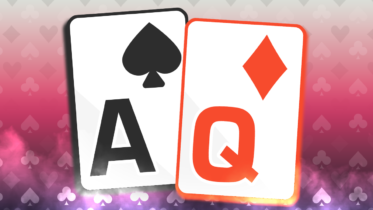If you have watched poker on TV over the past decade or more, you have probably seen poker players make all sorts of strange deals at the table, many of which are not part of typical poker games and rulebooks. Insurance in poker falls into this category, along with things like chopping pots, dealing it twice, and even exchanging hole cards in the most extreme cases.
While insurance in poker is not a part of the original Texas Hold’em rulebook, it is allowed in many casinos and poker rooms worldwide and sometimes even offered by players not directly involved in the game.
If you have ever played blackjack, you may be aware of the concept of insurance in blackjack. However, insurance in poker works a bit differently.
In this article, we are going to explain how poker insurance works, when you should and should not accept it, how to negotiate it properly, and how to ensure you are not breaking the rules of the game you are playing in.
Let’s start by explaining what poker insurance is in the first place.
What Is Insurance in Poker?
Before we start explaining what insurance in poker is and how it works, it is important to note that poker insurance only works in cash game poker and cannot be requested in tournaments.
Since tournament chips have no monetary value, getting an insurance deal from anyone at the table would be impossible, while making such deals with people away from the table would technically be possible but would often involve massive risk on your part.
So, when we talk about insurance in poker, we are talking only about cash game poker, while tournament players can hedge their bets by selling pieces of their action before the tournament starts.
In cash game poker, insurance allows you to hedge your bet anytime you are all-in and a favorite to win the pot after the cards are turned over.

Some poker rooms, especially online, allow you to purchase insurance from them, while others will allow players to make insurance deals with other players or railbirds.
In either case, the insurance deal allows the favorite to insure the pot by agreeing to pay a premium if they win the pot and expecting to be paid a payout if they lose a pot.
Typically speaking, the insurance deal will go slightly in favor of the party offering insurance to the player, but the exact terms of insurance can be negotiated by the parties involved.
Note that if insurance is allowed by the party running the game, players will be allowed to agree on any terms they choose, and the agreed-upon terms will be final.
Let’s take a look at a few different possible insurance scenarios and how they might play out in a real poker hand.
Poker Insurance Examples
Playing in a live $2/5 game in your local casino, you get your fresh $500 stack into the pot before the flop against the player in the big blind.
With $1,000 in the pot, you show your AsAh and your opponent exposes 8c8d for an inferior hand. You request insurance, and your opponent agrees to give you insurance at “fair” odds.
After looking at the odds calculator, you can see that your has about 80% equity, while your opponent’s hand has about 20%.
With that in mind, a completely fair deal would look like this:
- There is $1,000 in the pot
- You pay a $200 premium if you win the pot
- Your opponent pays you $800 if you lose the pot
Note that this example of poker insurance at no extra odds is identical to simply chopping the pot in accordance with the odds before the flop, but some poker rooms don’t allow for that either because of their own rules or the gambling laws in the given jurisdiction.
For that reason, the players can agree to make an insurance deal, which leads to the same outcome. In either scenario, you end up with $800 of the pot, and your opponent ends up with $200.
A more realistic and common scenario is when your opponent agrees to give you insurance but requests some extra odds in their favor.
In the same example as above, your opponent might agree to give you insurance at 75% odds, which means you would be paying them an extra 5% premium.
The outcome of that deal would look like this:
- There is $1,000 in the pot
- You pay a $250 premium, in you win the pot
- Your opponent pays you $750 if you lose the pot
In this scenario, your opponent is getting paid a bit to give you insurance, which means the deal actually adds value to their hand. However, it also protects you against losing a big pot with a superior hand.

Deals like this are also often negotiated with third parties, such as savvy gamblers who offer insurance at extra odds to anyone who will take it in certain poker games.
On the other end of the spectrum, you can even make an insurance deal that gives you the extra odds if you can find a player that’s desperate enough.
For instance, if a player truly believes they will lose the hand in question and would prefer to keep some of the money to stay in the game, they might agree to give you an extra 5%.
- There is $1,000 in the pot
- You pay a $150 premium if you win the pot
- Your opponent pays you $850 if you lose the pot.
Note that insurance deals like this are seldom accepted in scenarios like this, but much more often in scenarios where equities run closer, and the hands are close to 50/50.
For instance, one player may agree to give another 55% of the pot to avoid losing a massive coin flip when the stacks are very deep, and this is an opportunity to be used if it comes by.
Poker Insurance in Online Poker
Some online poker sites also offer poker insurance. If you request insurance in online games, you will be provided with a flat rate insurance on any hand you are a favorite in, and you will always have to pay a premium.
While online premiums on insurance are fairly low, they do add up over time if you take them every time, which is why it is recommended to only accept them in extreme cases of massive pots you don’t typically play.
Other online poker sites offer the cashout option instead of insurance, which allows you to cash out your equity in all-in situations, whether you are the favorite or the underdog, usually while paying a 1% premium.
The 1% premium to get your full equity every time you are all in can be quite enticing, and some serious poker players use this feature to decrease their variance and try to move up the stakes faster.
Should You Ever Take Insurance in Poker?
If you ever learned basic strategy for blackjack, you probably know that you should never take insurance in that game, as it is –EV to do so in every case.

However, this is not true in poker, as poker insurance can be negotiated, and the pot size is not always the same.
For starters, anytime you can negotiate insurance that gives you better odds than those you are getting at the table, you should accept it.
If your opponent or a third party agrees to pay you more than your fair share, then taking the insurance increases your EV in the hand.
If you are being offered insurance at real odds, the decision is up to you. You are not gaining or losing any EV by taking it, but you are decreasing your variance.
Finally, if you are asked to pay an extra premium on insurance, you should usually not accept the deal. The only exception is if you are playing in a game higher than your usual stakes and you are involved in an exceptionally big pot.
In such situations, paying that extra premium to ensure that you come out as a winner and don’t lose a pot that could severely hurt your bankroll may be worth it, although it technically is –EV.
The final decision when it comes to poker insurance should take factors like the size of your bankroll, your edge in the game, and your overall exposure into consideration.
Poker Insurance Etiquette to Keep in Mind
As we mentioned earlier, insurance is not a part of the classic poker rulebook, which means it is not a part of every poker game you may be involved in.
The most important rule of poker insurance is to ask whether insurance deals are allowed before you start playing.
If the game’s host, whether it’s an official poker room or otherwise, says it is not, you should not pursue insurance or ask for insurance deals during the game.
What you can do in such cases, even if insurance is not officially allowed, is insure your hands with your friends or other people in the game, but not with the money that’s on the table.
What this means is you can make an insurance deal that will be settled after the game without taking any chips out of play, regardless of the outcome of the hand.
If insurance is allowed, it is fairly important to close all insurance deals out quickly so as not to stall the game and waste other players’ time.
While the decision may be important for you, other players want to get on with play and see the next hand, so make sure you don’t take too long deliberating over the odds or agreeing on the terms of insurance.
Finally, if you ask for insurance and there is no interest, don’t push the issue or get mad about it. Simply play the hand as you usually would and quit the game if you don’t want to play without insurance deals.
Poker Insurance in a Nutshell
Poker insurance is a quirky side hustle that many poker players use to decrease their exposure and variance and to ensure they stay in the juiciest games out there.
Whether you like the idea of insurance or not is up to you, but it is important to understand its impact on overall EV and the value of taking insurance under favorable terms.
With many online poker sites now offering insurance at a fixed premium, understanding the concept is more important than ever.
Next time you play cash game poker, whether online or live, keep the idea of insurance in mind and try testing the waters to find out if you can get some extra value from getting your big hands insured in all-in spots.



